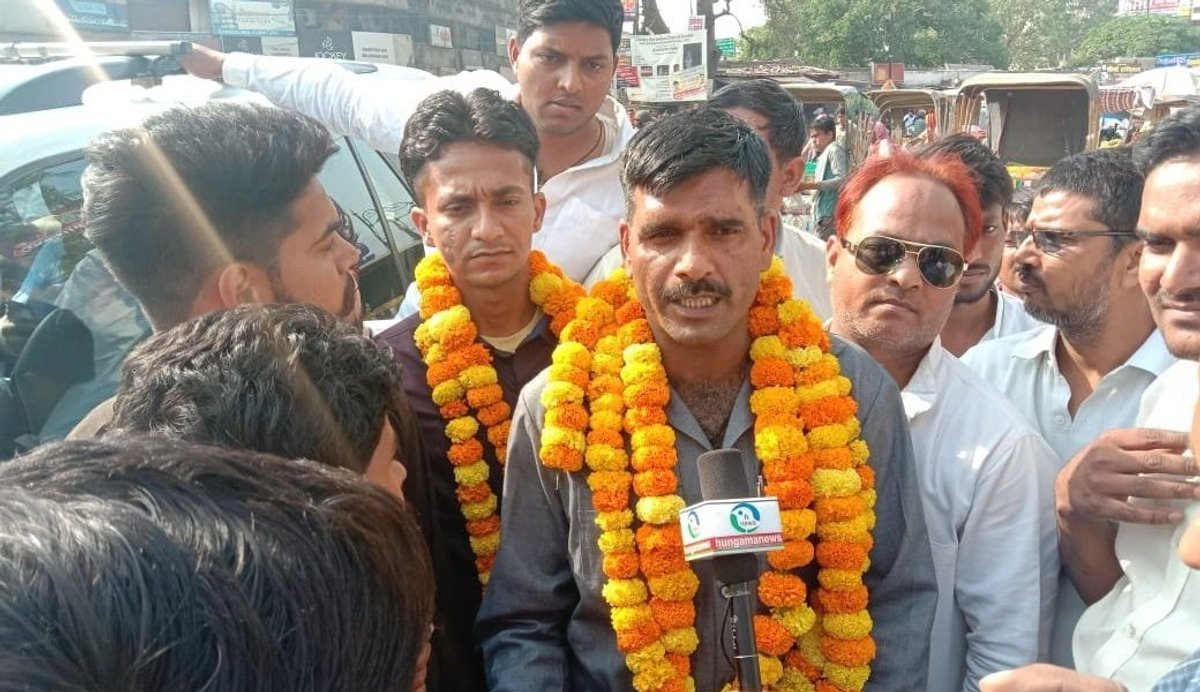According to a sting operation carried out by ABP News, the special observer for the Varanasi Lok Sabha constituency reportedly spent 48 hours trying to find a way to reject the nomination of dismissed Border Security Force (BSF) personnel Tej Bahadur Yadav, whom the Samajwadi Party had fielded against Prime Minister Narendra Modi in Varanasi.

According to a sting operation carried out by ABP News, the special observer for the Varanasi Lok Sabha constituency reportedly spent 48 hours trying to find a way to reject the nomination of dismissed Border Security Force (BSF) personnel Tej Bahadur Yadav, whom the Samajwadi Party had fielded against Prime Minister Narendra Modi in Varanasi.
Praveen Kumar, a senior IAS officer from the Tamil Nadu cadre, was appointed as special observer for the Varanasi Parliamentary seat by the Election Commission (EC). As per an ABP News report, Kumar said that he had to brainstorm for 48 hours to find out which sections under Representation of People Act, 1951 would have to be used to send notices to Yadav, News Central reported. The news channel recorded Kumar making the statement during a sting operation. “I have spent 48 hours… In the gap between first and second nomination, we checked all the rules… We didn’t neglect anything… I had discussions with the DM Returning Officer and lawyers over the phone, Election Commission… Everyone this 33 (3)… There is 33 (3) how you can accept… Go and check section 33(3) on the Internet it will be clear,” he told ABP News.
According to the report, Returning Officer Surendra Singh had issued two notices to Yadav after he had submitted his nomination papers. The first notice was related to Section 9 of the Representation of the People Act, 1951. As per this section, a central government or state government official who has been dismissed for corruption or disloyalty to the State would be disqualified from contesting elections for a period of five years from the date of such dismissal. Further, Section 9 (2) states that in such cases, a person has to obtain a certificate from the Election Commission to contest elections.
Speaking to ABP News, Yadav and his lawyer Rajesh Gupta clarified that there was no need for him to produce an Election Commission certificate as he was dismissed from the BSF for indiscipline. “I found that the rule was specifically for those who were disloyal or corrupt. Such people are meant to take a clearance from the Election Commission. I was not involved in any such thing; I put all my documents together quickly and then submitted the affidavit to the returning officer again. He accepted it,” Yadav said.
Later, the returning officer sent Yadav another notice pertaining to Section 33 (3) of Representation of the People Act, 1951. This section is related to individuals dismissed from government services. Unlike Section 9, this section does not specify “disloyalty” and “corruption” as reasons for dismissal from service.
“Where the candidate is a person who, having held any office referred to in 4[section 9] has been dismissed and a period of five years has not elapsed since the dismissal, such person shall not be deemed to be duly nominated as a candidate unless his nomination paper is accompanied by a certificate issued in the prescribed manner by the Election Commission to the effect that he has not been dismissed for corruption or disloyalty to the State,” states Section 33 (3) of RP Act, 1951.
The returning officer had asked Yadav to submit a certificate issued from the EC that he had not been dismissed for corruption or disloyalty to the state by 11 am on May 1. “He gave me the notice at 6 pm on the previous day. How was I supposed to go to Delhi and bring the certificate? My lawyer still went to Delhi and reached the Election Commission at 2 am. They didn’t allow him to enter. But, finally, he managed to enter at 11 am,” Yadav said.
Senior Election Commission Official Indra Bhushan Verma told ABP News that the observer cannot interfere in the nomination process. Similarly, Chief Election Commissioner of India OP Rawat also mentioned that “the role of an observer is to observe.”
Varanasi District Magistrate Surendra Singh had reportedly told the media that Yadav’s nomination was rejected as it failed to meet Section 9 and 33(3) of the Representation of the People Act, 1951. He had further said that Yadav was unable to submit the necessary certificate issued by EC in the stipulated time.
Yadav had alleged that the officials conspired to reject his nomination. He also underlined that the second notice was given to him only after he could furnish the relevant documents when the first notice. Special election observer Kumar’s claims on camera highlight the fact that efforts were made to stop Yadav from contesting the Lok Sabha elections against Modi.
The Supreme Court had dismissed Yadav’s plea after he had moved the court against EC’s decision to reject his nomination.
It is unclear who motivated the observer to go out of his way to reject Yadav’s nomination but fingers are being pointed at the ruling party. Even though many nominations have been rejected throughout the country, which is usual in any election, this rejection of Tej Bahadur Yadav is been monitored with intense scrutiny as he was to stand against PM Modi.
More concrete details are awaited in this developing story.